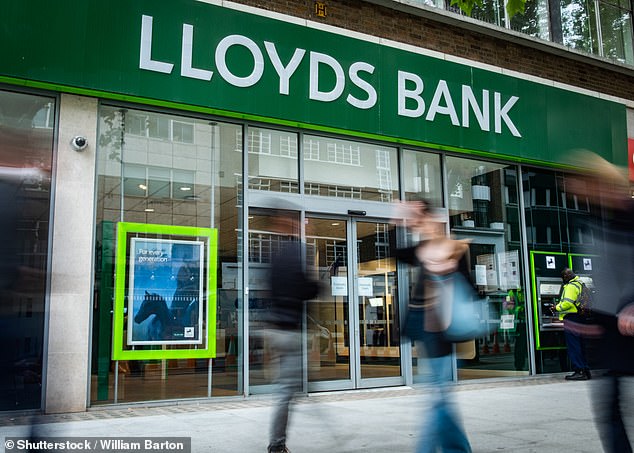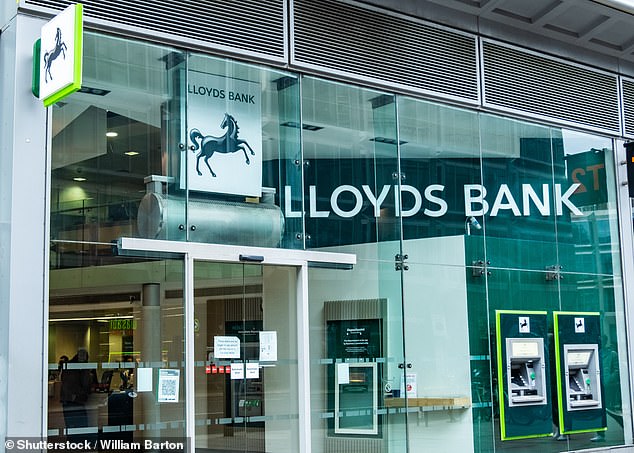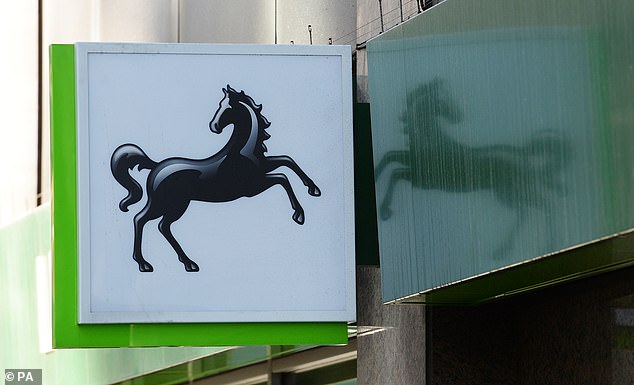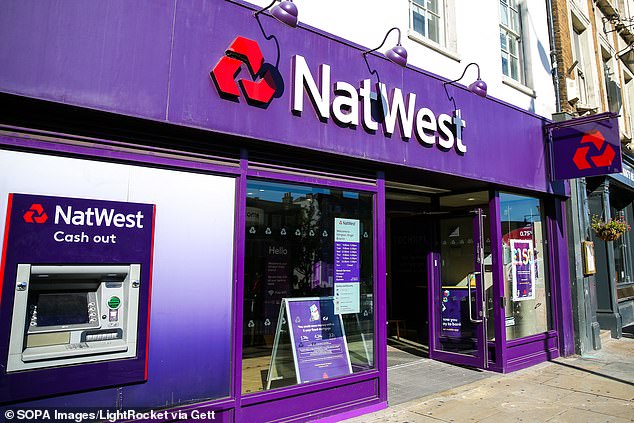Lloyds’ controversial plan to give 10 million loyal customers a second-rate service
>
Lloyds Banking Group has drawn up controversial plans to send ten million low-value customers to a second-rate service, The Mail on Sunday can reveal.
Under a new tiered system – criticized last night as “deeply cynical” – customers placed in the bottom tier will receive inferior service compared to those deemed more profitable.
Documents seen by the MoS classify customers at Lloyds and its sister outfits Halifax and Bank of Scotland according to how much profit they generate.
In the future, only those deemed to be of the greatest financial value – based on the products and services they buy – will receive the highest level of service.

Under a new tiered system – criticized last night as ‘deeply cynical’ – customers placed in the lower tier will receive inferior service compared to those deemed more profitable
Under the proposals, lower customers would:
- faced with longer waiting times on the phone;
- Transfers to a less experienced call handler when they finally transfer;
- Less chance of having an office appointment on the same day;
- Encourage the use of “self-service” solutions, such as apps, rather than calling or using a branch.
The papers also show that the top 25 percent of customers – who are believed to generate 97 percent of the “value” – can reduce call waiting time from 15 minutes to 15 seconds. The bank is also considering giving them what the documents call personalized “prizes, offers and rewards.”
Those relegated to the “low value” group, about 30 percent of Lloyds’ customers, aren’t necessarily struggling. This includes retirees and people who have assets and savings, but are not overdrawn or buy other financial products, such as loans or insurance, that yield big profits.


Documents accessed by The Mail on Sunday rank customers of Lloyds and its sister outfits Halifax and Bank of Scotland according to how much profit they generate
Banks have been offering their wealthiest clients a more tailored service for years. But the Lloyds’ documents expose its attempts to push the strategy further by stratifying its customers who have been entitled to the same level of service until now.
James Daley, founder of campaign group Fairer Finance, said: “It’s one thing to have different products for people with more money, but it feels deeply cynical to offer customers of the same products different levels of service based on how wealthy they are.”
Companies are already using more data to categorize customers for specific marketing. Lloyds uses advances in machine learning and artificial intelligence to analyze customer behavior and respond more accurately to them.
But Mr. Daley said, “You can’t have a secret algorithm that discriminates against ten million customers across an entire product range.”


The papers also show that the top 25 percent of customers – believed to generate 97 percent of the “value” – can reduce call waiting time from 15 minutes to 15 seconds.
A source at the bank confirmed it would launch a service targeting “massive” clients with income or wealth in excess of £75,000 (excluding real estate) in the first half of this year. It wants a larger share of the estimated two million people in this group.
“We are looking to deepen relationships with existing customers and develop a massively affluent offering, where we are currently underrepresented,” said a spokesperson.
But the source insisted there was no intention to reduce service quality or take anything away from other customer groups.
Tory MP Marco Longhi said: “It is sad to see Lloyds, a bank synonymous with British retail banking, which saved the taxpayer £20bn when it was needed, have customers with such an apparent treat insensitivity.
“I think it has to do with people’s unwillingness to switch banks, but I would encourage them to try. It’s much easier than people think.’
The Dudley North MP added: ‘My message to Lloyds is to look after all your customers. You needed them once, you may need them again.’


A source at the bank confirmed it would launch a service targeting “massive” clients with income or wealth in excess of £75,000 (excluding real estate) in the first half of this year.
Is it really too much to ask of big banks to give us all a fair deal? asks Jeff Prestridge
Despite many failures, their appalling part in the 2008 financial crisis and previous bouts of rampant misselling, the country’s leading banks continue to benefit — profit — from the trust placed in them by loyal customers.
Crazy? Yes. Error? Naturally. But alas, it’s true. Most diehard clients of the big banks (Barclays, HSBC, Lloyds, NatWest and Santander) are routinely exploited – and they do little about it. Stiff upper lip and all.
When Lloyds – a bank we helped save during the 2008 crisis – gives the go-ahead for a more personalized service aimed at the wealthy, their diehard customers will no doubt take it on the chin. They won’t sleep a wink.
For them, there is no hotline for an experienced customer service representative if something goes wrong. For them, there are no same-day office appointments to discuss a burning financial problem. But of course they just carry on as normal.
It is an undeniable fact that in the minds of many customers, their bank – the bank they have been with for decades – can do no wrong. It is a marriage that is unbreakable, solid as a rock. Until death do us part.
My mother Helen, now in her 80s, is as loyal to NatWest as she was to my father during their long marriage before he passed away five and a half years ago. Monogamy in her married life – and in her day-to-day banking. When I visit her, I am not allowed to say a single bad word about NatWest. Only mobility issues keep her from visiting the local branch – she sees the staff there as dear friends, banking goddesses.


Pictured: A NatWest Bank in central London (file photo)
Unfortunately, this customer trust, which dates back to when branch offices had managers who often became family friends, means that the big banks (including NatWest) often get away with the equivalent of financial blue murder.
Knowing that most loyal customers, especially the elderly, will never let them down puts them in as much financial pain as they think they can get away with it.
This is reflected in interest rates on regular savings accounts that are downright abusive – about 0.5 percent, compared to a base rate of 3.5 percent. And, of course, it allows the banks to cut their branches, which many of their loyal (and older) customers depend on to do their banking.
Some 619 stores were closed last year, most with no protest in sight, and a similar number will face the ax this year. Those that remain are increasingly dehumanized as staff are replaced by machines and, in many cases, hours of operation are reduced.
For the record, my mother’s NatWest branch in Sutton Coldfield remains open, although no counter service is available on Saturdays.
Surely it is not too much to ask of our large banks to give ALL their customers a fair deal, to offer an acceptable level of service and to promise a quick handling of complaints. These should be given regardless of a client’s wealth.
Liberal Democrat MP Sarah Olney, the party’s Treasury spokesman, said: ‘This really is a kick in the teeth for struggling families as the cost of living crisis shows no signs of abating.
Banks should now do everything they can to help people through financial difficulties.
“They have to do their part to help Britain through this financial crisis, and providing a second-rate service to millions of Britons is simply not good enough.
“They need to reconsider this immediately.”
THESE ARE THE FIVE OF MONEY FROM THE BEST DOMESTIC ACCOUNTS
Some links in this article may be affiliate links. If you click on it, we may earn a small commission. That helps us fund This Is Money and use it for free. We do not write articles to promote products. We do not allow any commercial relationship to compromise our editorial independence.
